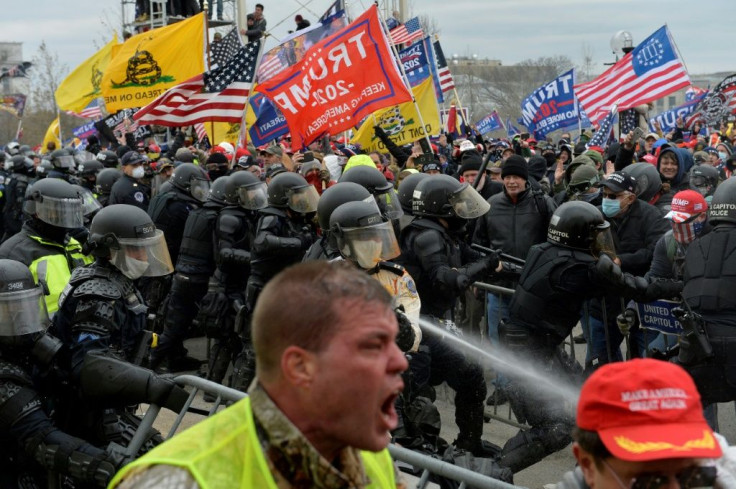Facebook Touts Fighting Abuse During US Capitol Attack
Facebook on Thursday touted its progress in curbing content likely to stoke violence, including before, during and since the deadly US Capitol attack that has Donald Trump facing a second impeachment trial.
The social network, which has come under fire for allowing use of its platform to help orchestrate the January 6 riot, also said it had provided information to law enforcement agencies during the insurrection.
"There's a lot that we did specifically with regard to the Capitol attacks to make sure that we were doing our part," Facebook vice president of content policy Monika Bickert said during a call with reporters, including removing calls for people to bring weapons to the site.
"We were monitoring the assault in real time and made appropriate referrals to law enforcement to assist their efforts to bring those responsible to account," she said.
Facebook has notably been helping police identify people who posted photos of themselves from the scene, according to Bickert.
She noted that since August the social network has banned more than 890 militias and armed movements, more than 3,000 pages and 19,000 groups linked to violence -- a good portion of them prior to the riot that marred certification of President Joe Biden's victory by Congress.
Facebook released an update on content removed in the final three months of last year, saying tightened policies and improved artificial intelligence helped it fight abuses through the November election and the violent crescendo that followed on January 6.

"There was a lot that we were doing in the run up to make sure that our services would not be abused," Bickert said. "Then there's also what we were doing with law enforcement. That's in the run up to the violence; throughout the violence, and afterward."
Facebook in November began blocking messages with the "Stop the steal" slogan used by supporters of former president Trump to push his baseless claim of mass election fraud -- if they were also deemed to be inciting violence.
After the attack on the Capitol, Facebook determined that the expression was associated with justifying the riot or violence in general, and decided not to allow it, according to Bickert.
The internet titan, like neighbors in Silicon Valley, ended up toughening its tone against Trump, who was banned from a host of social media services after the attack on the democratic process.
Facebook also banned promoting the QAnon movement based on extreme conspiracy theories.
Trump, who was impeached last month for inciting insurrection, is expected to avoid conviction thanks to Republican support in the Senate.
Facebook reported it had taken down 6.4 million pieces of organized hate content in the last three months of 2020, up from four million in the previous quarter, and 26.9 million pieces of content violating hate speech rules in general.
At Facebook-owned Instagram, 308,000 pieces of organized hate content were removed, up from 224,000 in the previous quarter, while the amount of removed hate speech content in general was up only slightly to 6.6 million items.
© Copyright AFP 2024. All rights reserved.





















